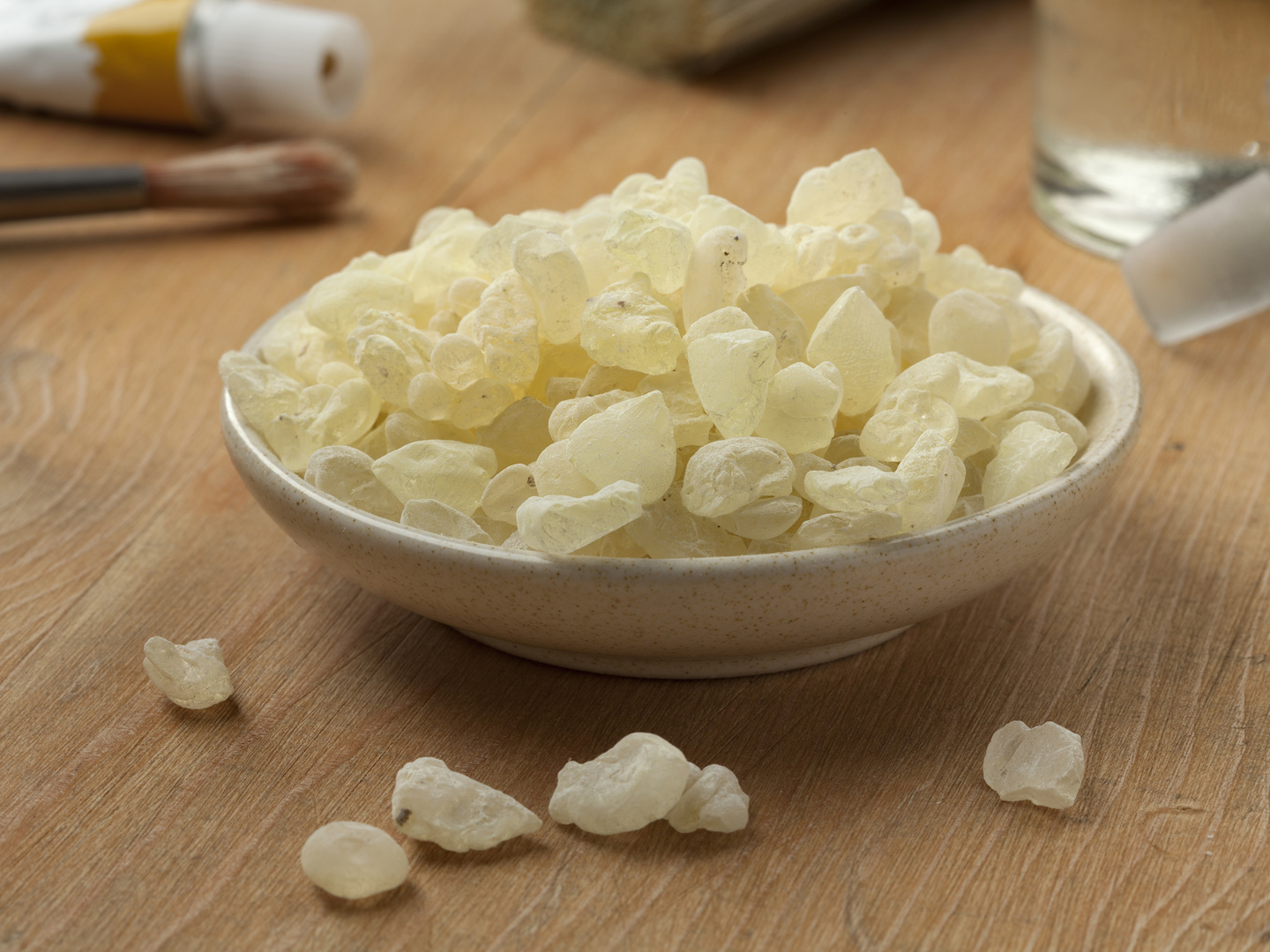Medicate With Mastic Gum?
Do you have any experience with or observations of mastic gum used as medicine?
Andrew Weil, M.D. | March 5, 2009

Mastic is a sticky substance exuded from the branches and trunk of the mastic tree (Pistaccia lentiscus var. chia), which grows in the eastern Mediterranean and North Africa. The sweetest-smelling variety comes primarily from trees on the Greek island of Chios. Mastic gum has been chewed for at thousands of years to soothe upset stomachs, ease gastritis, and freshen the breath.
I discussed your question with Tieraona Low Dog, M.D., an internationally recognized expert in the fields of integrative medicine, dietary supplements and women’s health and an authority on botanical medicine. She told me that researchers have found that mastic gum kills many of the oral bacteria that cause bad breath and promote cavities, which is why it’s included in a variety of toothpastes and mouthwashes. Some evidence also suggests that it can help reduce inflammation in the gastrointestinal tract. For this reason, you’ll often find mastic gum in supplements for heartburn, usually in combination with deglycyrrhizinated licorice (DGL), a natural remedy I often recommend for stomach irritation.
Dr. Low Dog also told me that doctors use a liquid adhesive called Mastisol that contains mastic gum to help keep bandages in place. In addition, you can find this natural product in a number of topical ointments and salves for minor wounds and scrapes. Some evidence suggests that the essential oil in the gum is responsible for its antibacterial activity.
The most recent scientific findings on mastic gum come from a study performed in Greece showing reduced total cholesterol and LDL (“bad” cholesterol) and an improvement of total cholesterol/HDL ratio among volunteers over the age of 50 who took five grams of mastic powder per day. The same study showed improvement in levels of some proteins involved in cholesterol transport. While checking its safety, the researchers noted mastic induced a reduction in certain liver enzymes and concluded that the Chios mastic powder used in their study could have protective effects on the heart and liver. The study was published in the April 20, 2007 issue of the Journal of Ethnopharmacology.
Andrew Weil, M.D.










